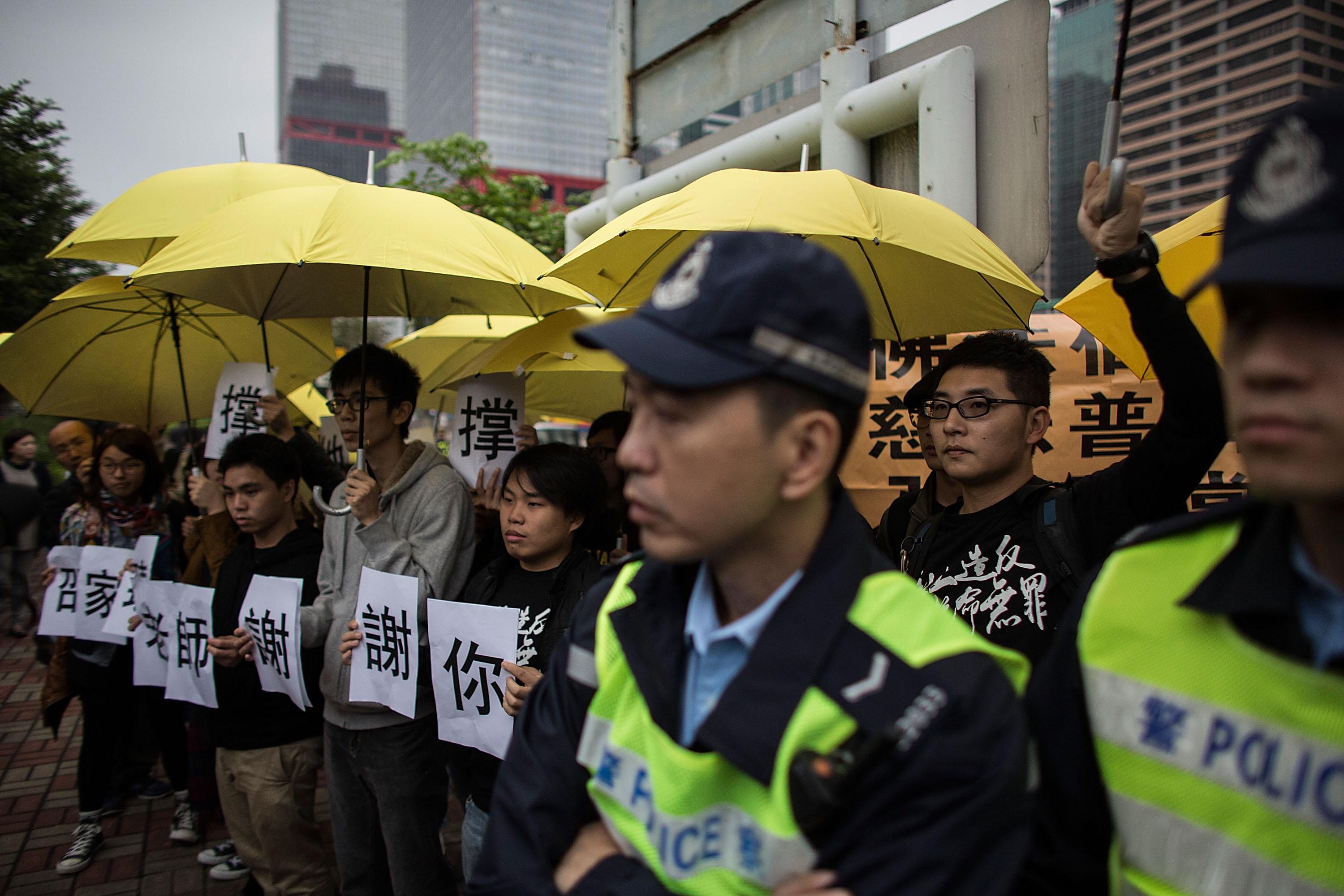More than 80,000 members of the Communist Party, from obscure local officials to some of the most powerful people in China, have been investigated as part of President Xi Jinping’s ongoing corruption crackdown. Many believe these investigations are the explanation for a recent wave of officials committing suicide. But what about the supposed purpose of these inquiries: Are they doing anything to cut down on the widespread belief that Chinese officials are corrupt?
Not really. China has fallen 20 places in Transparency International’s Corruption Perception Index, dropping from 80th in 2013 to a tie for 100th place with Algeria and Suriname. The heavily cited index measures perceptions of public-sector corruption based on a number of assessments of governance and business climate. This year, Denmark was perceived as the least corrupt (surprise, surprise), with Somalia and North Korea coming in last.
Not all of China is perceived so negatively. Hong Kong, which is rated separately from the rest of the People’s Republic, came in at 17th, tying it with a motley grouping of Barbados, Ireland, and the United States. The disparity is worth considering in light of the ongoing anti-Beijing protests in Hong Kong, which have raised the question of how much longer China will keep the “one country, two systems” arrangement that allows the city to maintain an independent legal and political system.
Hong Kong makes up a much smaller portion of the overall Chinese economy than it used to, and it’s lost some of its luster thanks to the emergence of free-trade zones on the mainland. But what it does have, as reflected by the index, is a solid international reputation. As the Economist noted in September, “foreign companies also use the city as their staging post for investing in China as it offers them something that no mainland city does: a stable investment environment, protected by fair, transparent courts that enforce long-established rule of law.” The Chinese government has taken advantage of this environment as well, using Hong Kong as a testing ground for a number of financial reforms.
But if Hong Kong’s reputation as a safe and stable place to do business is the key to its relevance, stories involving police crackdowns and triad gangsters haven’t been helpful.
Judging by recent reports, the resolve of the Occupy Central protesters appears to be waning. Student leader Joshua Wong has now launched a hunger strike in a bid to keep the momentum going. But the aftereffects of the turmoil will be felt for some time. In their bid to keep Hong Kong under control, Chinese authorities may be undermining the benefits of maintaining it as an independent entity at all.
